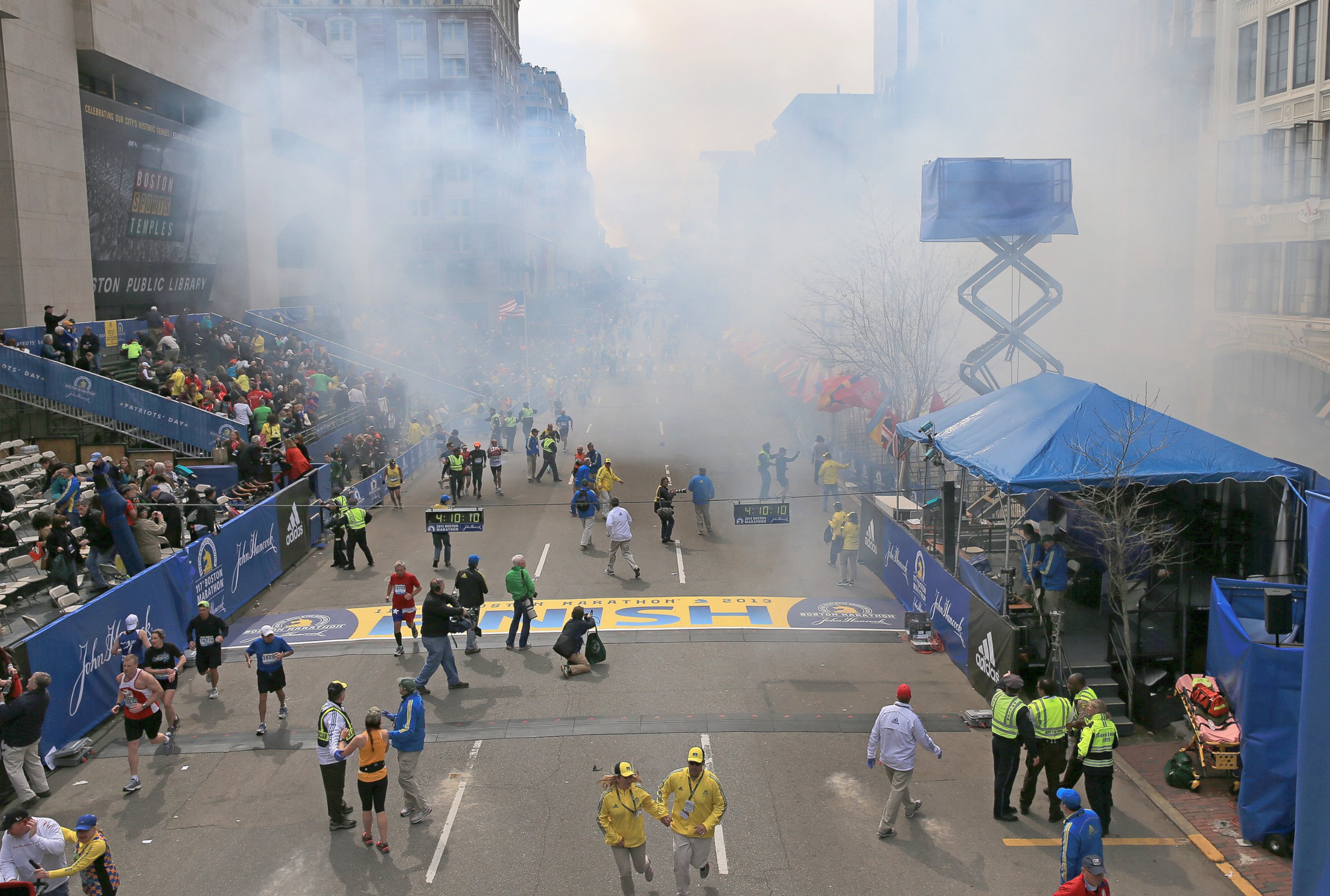Cable: For Years FBI Was Little Help Going After ‘Russia’s Bin Laden’
Russia repeatedly asked for intel on Doku Umarov, feds didn't have much.
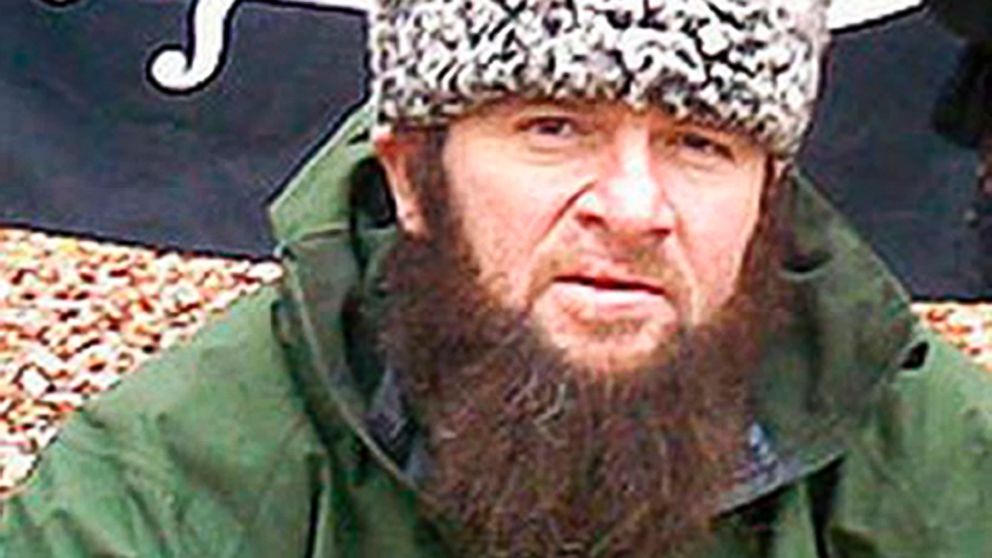
— -- Russian security services for years asked the FBI for information the Americans may have had on the man known as “Russia’s Osama bin Laden,” but the FBI was little help – mostly because even after high-profile terror attacks and an official terrorist designation by the U.S., the Bureau hadn’t opened its own investigation into the man, according to FBI documents obtained by ABC News.
“The Federal Security Services (‘FSB’) of the Russian Federation has made regular foreign police cooperation requests of the FBI over a number of years seeking assistance/information concerning terrorist threats emanating from Chechnya, the North Caucasus and, specifically, Doku Umarov,” says a cable sent from the FBI’s office in Moscow to headquarters in February 2011. “The FBI has been able to render limited assistance in response to these requests, given the fact that the FBI did not have its own assessment and/or predicated investigation open.”
The cable, obtained through a Freedom of Information Act request, was written as a suggestion by the Moscow office that the FBI in Washington open such an investigation into Umarov in the days after the suicide bombing at Moscow’s Domodedovo airport, which claimed the lives of 35 people. Umarov, the leader of an Islamist Chechen separatist group who had been designated a terrorist by the U.S. State Department in June 2010, claimed responsibility for the attack in a chilling video.
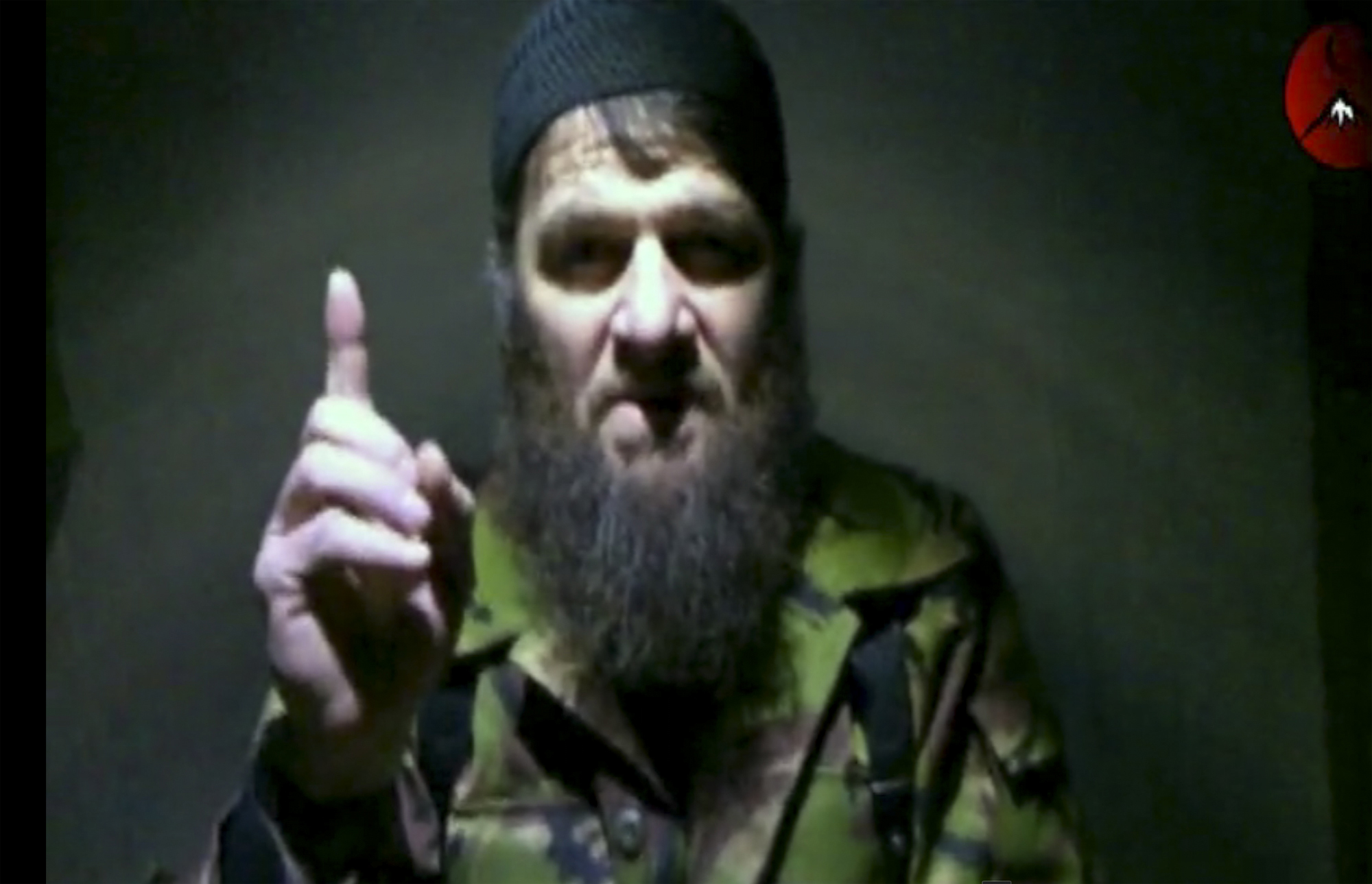
Prior to the Domodedovo bombing, Umarov was believed to be behind the deaths of dozens of others in Russia in high-profile attacks, including the 2010 suicide bombings in a Moscow subway that killed 40 and the 2009 bombing of a high-speed train that killed 28. But it was the Domodedovo bombing, and a previously undisclosed close call for Americans at the airport, that caught the attention of the FBI’s Moscow office.
“…[T]he targeting of this attack was broader in scope than previous attacks, in that it took place in the international arrivals area of Russia’s largest airport, where non-Russian citizens were very likely to be (and, in fact, were) present,” the cable says. “In fact, United States Embassy employees were due to traverse the international arrivals hall that day after arriving on international flights, but were held on the tarmac in the aftermath of the bombing.”
“Therefore, it is only by chance that no United States citizens were killed or injured in the attack,” the cable says. “Given the explicit targeting of foreigners in this latest attack and Doku Umarov’s own statements tying this attack to a global jihad against Western interests in response to United States actions, Moscow requests that the Counterterrorism and/or Washington Field [office] consider opening an assessment or predicated investigation into the terrorist activities of jihadists located in the North Caucasus and led by Doku Umarov.”
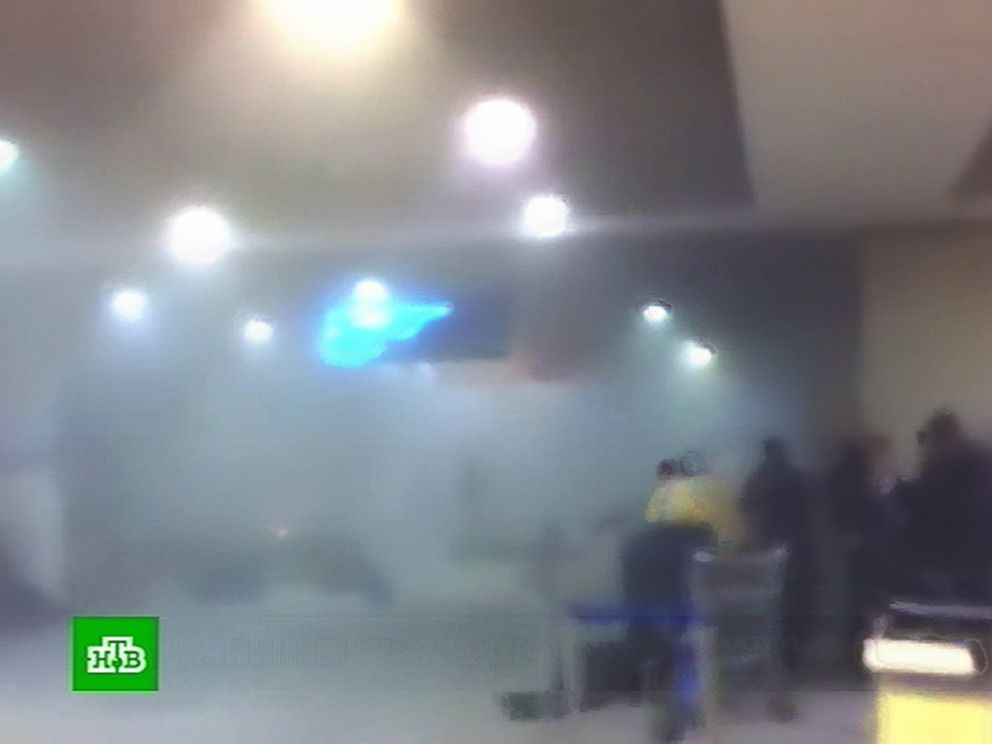
The documents provided to ABC News by the FBI include Washington’s response a week later, but beyond saying that the office “reviewed material relevant to Umarov and the bombing” and consulted with FBI lawyers and at least one other unidentified party, the Bureau’s actions are redacted. After four lines of whited-out text, the document simply says, “WF [Washington Field office] considers this lead covered.”
Neither FBI headquarters nor the FBI’s office in Moscow provided clarification to ABC News and no more recent documents were made available, despite the FOIA request being made for any releasable FBI files on Umarov. Brad Garrett, a former FBI special agent and current ABC News consultant, said that based on what is visible, it appears the FBI declined to open an investigation at the time.
Garrett also said that these formal requests -- from the FSB, through FBI Moscow to FBI Washington -- are only one way that information is generally shared between two nations’ intelligence and law enforcement agencies. There’s always the possibility that the CIA, for instance, was trading information directly with the Russians. A spokesperson for the CIA declined to comment on Umarov’s case, but acknowledged that generally the Agency does communicate with foreign security services.
Regardless, the interest in Umarov among U.S. government officials was apparently growing and three months after the FBI cable, the State Department announced a $5 million reward for information leading to his capture. Then all eyes in American security turned to Umarov in mid-2013 after he issued a vague threat against the Olympic Games, which were being held the next year in Sochi, Russia, in the North Caucasus.
“They [Russians] plan to hold the Olympics on the bones of our ancestors, on the bones of many, many dead Muslims, buried on the territory of our land on the Black Sea, and we as mujahideen are obliged to not permit that, using any methods allowed us by the almighty Allah,” Umarov said in a video in July 2013.
U.S. Homeland Security Secretary Janet Napolitano said at the time that she had met with top Russian security officials about “information sharing in support of security for the Sochi Winter Olympics in 2014.”
“With regard to security, our nations share a strong commitment to countering terrorism and violent extremism,” she said.
Then, in December 2013, more than two dozen people were killed in dual bombings in the Russian city of Volgograd –- though Umarov made no claim of responsibility. At the time, two American security experts, Homeland Security Policy Institute Director Frank Cilluffo and LAPD Deputy Chief of the Counter-Terrorism Bureau Michael Downing, wrote that anti-terror cooperation between the Americans and Russians ahead of Sochi “could be better.”
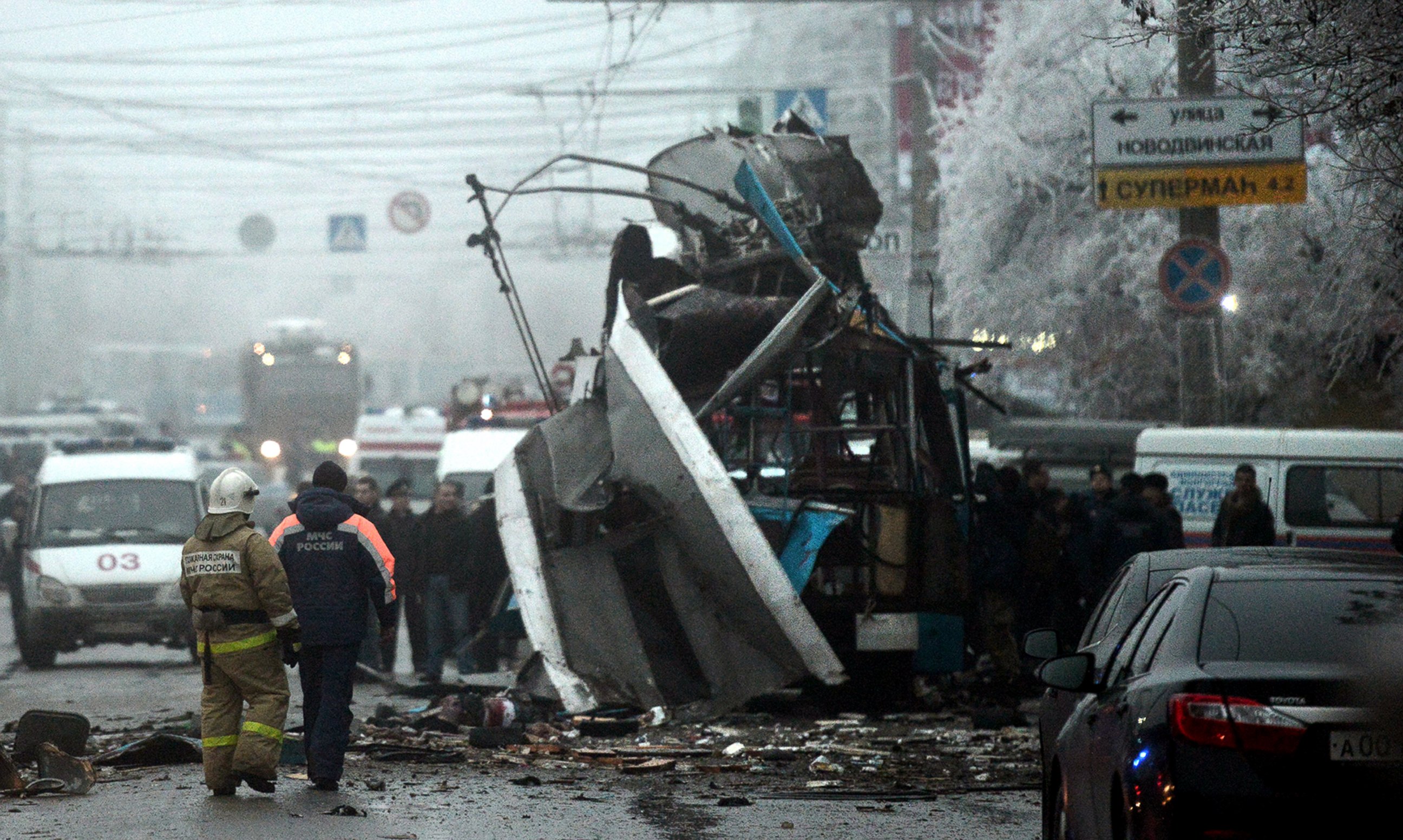
Umarov was rumored to have been killed sometime in early 2014. Though the U.S. government initially declined to confirm his death, it is now generally accepted that he has met his fate. A pro-Islamist website that previously hosted his messages mourned his death and his image no longer appears among America’s Most Wanted Terrorists.
The FBI’s relationship with Russian authorities came under scrutiny in the aftermath of the Boston Marathon bombing in April 2013 that killed three Americans, including an eight-year-old boy. In 2011 – the same year as the FBI cable on Umarov – the FSB made two separate requests that the FBI and CIA investigate Tamerlan Tsarnaev, one of the would-be bombers, after Tsarnaev traveled to his ancestral home in the North Caucasus and apparently had been linked to extremism.
The tip eventually got Tsarnaev’s name into a terrorism-related database, but the FSB was criticized for not answering any of the FBI’s follow-up questions, according to a 2014 U.S. government report.
lee.h.ferran@abc.com
